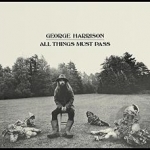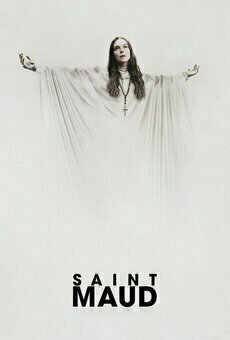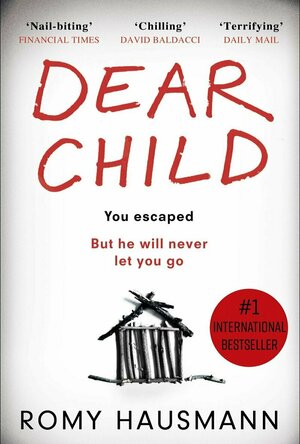Search
Search results
Nick McCabe recommended All Things Must Pass by George Harrison in Music (curated)
LeftSideCut (3776 KP) rated Saint Maud (2020) in Movies
May 28, 2021
God damn, am I a sucker for horrors that are equally beautiful and unsettling. Saint Maud hit all the right notes for me.
A big chunk of the runtime is dedicated to the extremly authentic-feeling relationship between the titular Maud (Morfydd Clark), a live-in nurse and her patient Amanda (Jennifer Ehle), a retired dancer who is terminally ill with cancer. The sweet connection between the two of them is subtle but well realised, making it all the more uncomfortable when things take a sinister turn.
The religious premise is nothing new in this genre, and there is a bit of a Rosemary's Baby vibe going on, but it's execution is pretty much flawless. Maud's devotion to God is occasionlly terrifying, but her human doubt and her occasional shake in faith stops the narrative from going full blown religious fanatic, and instead touches upon mental health issues. For all of her preaching at Amanda, Maud is the one who is portrayed as lost and lonely, trying to suppress past trauma. Her character is certainly a sympathetic one.
95% of its runtime is a slow burn, one that is complimented by wonderful cinematography and a haunting music score. However, I'm struggling to think of a film in recent memory that escalates so severely in such a short space of time, when the other 5% finally hits. To say anymore would be stepping into spoiler territory, but I will say that it's beautifully horrifying to watch unfold, with a final shot that will be seared into my brain for a while.
Rose Glass has created a true horror masterpiece with Saint Maud. Her presence withing the horror genre is a welcome one, and I'm excited to see what she does next.
A big chunk of the runtime is dedicated to the extremly authentic-feeling relationship between the titular Maud (Morfydd Clark), a live-in nurse and her patient Amanda (Jennifer Ehle), a retired dancer who is terminally ill with cancer. The sweet connection between the two of them is subtle but well realised, making it all the more uncomfortable when things take a sinister turn.
The religious premise is nothing new in this genre, and there is a bit of a Rosemary's Baby vibe going on, but it's execution is pretty much flawless. Maud's devotion to God is occasionlly terrifying, but her human doubt and her occasional shake in faith stops the narrative from going full blown religious fanatic, and instead touches upon mental health issues. For all of her preaching at Amanda, Maud is the one who is portrayed as lost and lonely, trying to suppress past trauma. Her character is certainly a sympathetic one.
95% of its runtime is a slow burn, one that is complimented by wonderful cinematography and a haunting music score. However, I'm struggling to think of a film in recent memory that escalates so severely in such a short space of time, when the other 5% finally hits. To say anymore would be stepping into spoiler territory, but I will say that it's beautifully horrifying to watch unfold, with a final shot that will be seared into my brain for a while.
Rose Glass has created a true horror masterpiece with Saint Maud. Her presence withing the horror genre is a welcome one, and I'm excited to see what she does next.
Laetitia Sadier recommended Cap Waller by Bertrand Belin in Music (curated)
Kristy H (1252 KP) rated Dear Child in Books
Oct 29, 2020
Lena Beck disappeared fourteen years ago--a carefree student who simply vanished without a trace. Since then, her father, Matthias, and her mother have waited for any news about their daughter's whereabouts. Then, they receive a call: a woman has been found after an accident. She's in the hospital and a young girl, Hannah, presumably her daughter, is with her. From Hannah, we learn that Lena and Hannah were living in a cabin, basically unknown and cutoff from the outside world.
"He creates day and night. Like God."
This book was quite the ride! I couldn't put this one down. It was eerily reminiscent of Wendy Walker's Don't Look For Me, which I just read, and of course, Room, as everyone has mentioned. It's utterly captivating; I read it over the course of about 24 hours. The story is told from the perspective of Hannah, who has her own unique voice (that's putting it mildly); the woman known as Lena; and Matthias. Together, they tell us a creepy and often heartbreaking tale, going back in time to the cabin, as well as present day in the hospital.
I won't go too in-depth, because it's best to go in to this one blind. I will say that it's easy to get caught up in the characters, particularly Lena, and Hannah, in a sort of spellbinding way. I was mesmerized by their stories and totally enjoyed that I didn't guess the outcome. I thought this was going to be a 4.5-star read, but the ending wound up being a little crazy. It came on suddenly and just seemed a bit jarring.
Still, if you're looking for an eerie and compelling read--told by some original and haunting voices--you'll enjoy DEAR CHILD. 4 stars.
"He creates day and night. Like God."
This book was quite the ride! I couldn't put this one down. It was eerily reminiscent of Wendy Walker's Don't Look For Me, which I just read, and of course, Room, as everyone has mentioned. It's utterly captivating; I read it over the course of about 24 hours. The story is told from the perspective of Hannah, who has her own unique voice (that's putting it mildly); the woman known as Lena; and Matthias. Together, they tell us a creepy and often heartbreaking tale, going back in time to the cabin, as well as present day in the hospital.
I won't go too in-depth, because it's best to go in to this one blind. I will say that it's easy to get caught up in the characters, particularly Lena, and Hannah, in a sort of spellbinding way. I was mesmerized by their stories and totally enjoyed that I didn't guess the outcome. I thought this was going to be a 4.5-star read, but the ending wound up being a little crazy. It came on suddenly and just seemed a bit jarring.
Still, if you're looking for an eerie and compelling read--told by some original and haunting voices--you'll enjoy DEAR CHILD. 4 stars.
LeftSideCut (3776 KP) rated Krampus (2015) in Movies
Dec 15, 2020
Krampus is an absolute gem of a Christmas movie. It manages to pack in a bit of festive spirit, whilst simultaneously being a fun-as-hell horror ride, and has enough strikingly creepy imagery, ensuring it satisfies horror fans, and potentially a slightly younger audience at the same time.
The first third is sort of a comedy, as the characters are introduced against the familiar backdrop of having the dreaded experience of extended family over for the holidays. The cast are all great - Adam Scott, David Koechner, Allison Tolman, Conchata Ferrell and Krista Stacker all carve out personas with their own unique traits, and all do it in a relatble manner. The shining star is of course Toni Collette, who just manages to be fantastic in everything she's in, even a silly comedy horror like Krampus. The kid actors are great as well, especially Emjay Anthony as lead character Max.
When the horror starts to unfold, it's executed in a sort of gateway-horror style. It's fun enough to appeal to a younger audience as mentioned, but still has creepy moments. For instance, when the titular Krampus is first glimpsed, bounding across rooftops in a blizzard, it's a striking visual that manages to be quite haunting. The whole aesthetic is fantastic, festive one minute, dark and cold the next, with an almost Nightmare Before Christmas look to all of the monsters. Krampus himself looks horrifying when he is finally revealed in all his demonic yuletide glory. There's also an incredibly charming animated segment around the midway point that just adds even more to the overall experience.
If you're looking for an alternative Christmas movie, then you can do a lot worse than Krampus. It's hugely entertaining and memorable, and just a good time all round, and the best movie to include a scene involving murderous gingerbread men (sorry Gingerbread Man...)
The first third is sort of a comedy, as the characters are introduced against the familiar backdrop of having the dreaded experience of extended family over for the holidays. The cast are all great - Adam Scott, David Koechner, Allison Tolman, Conchata Ferrell and Krista Stacker all carve out personas with their own unique traits, and all do it in a relatble manner. The shining star is of course Toni Collette, who just manages to be fantastic in everything she's in, even a silly comedy horror like Krampus. The kid actors are great as well, especially Emjay Anthony as lead character Max.
When the horror starts to unfold, it's executed in a sort of gateway-horror style. It's fun enough to appeal to a younger audience as mentioned, but still has creepy moments. For instance, when the titular Krampus is first glimpsed, bounding across rooftops in a blizzard, it's a striking visual that manages to be quite haunting. The whole aesthetic is fantastic, festive one minute, dark and cold the next, with an almost Nightmare Before Christmas look to all of the monsters. Krampus himself looks horrifying when he is finally revealed in all his demonic yuletide glory. There's also an incredibly charming animated segment around the midway point that just adds even more to the overall experience.
If you're looking for an alternative Christmas movie, then you can do a lot worse than Krampus. It's hugely entertaining and memorable, and just a good time all round, and the best movie to include a scene involving murderous gingerbread men (sorry Gingerbread Man...)
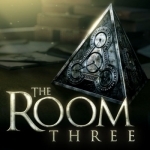
The Room Three
Games
App
***WARNING: DUE TO HEAVY GRAPHICS REQUIREMENTS, THE ROOM THREE IS NOT COMPATIBLE WITH IPAD 1, IPHONE...
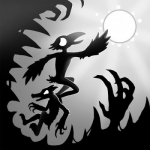
Crowman & Wolfboy
Games
App
"The perfect union of a platformer and an endless runner" - IGN Italy (8.5/10) "I really can’t...
Heather Cranmer (2721 KP) created a post
May 28, 2020
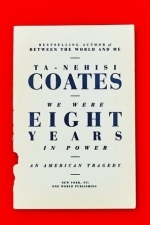
We Were Eight Years in Power: An American Tragedy
Book
A sweeping collection of new and selected essays on the Obama era by the National Book Award-winning...
Politics social issues essays
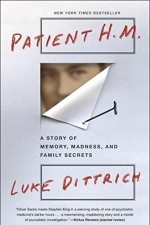
Patient HM: A Story of Memory, Madness, and Family Secrets
Book
In 1953, a twenty-seven-year-old factory worker named Henry Molaison—who suffered from severe...
Science medicine biography
